Former BMC and Santa Cruz engineer Jonas Mueller launched his own bike brand back in 2019 and now he’s applying his carbon fibre knowledge to a new component brand – Faserwerk Components.
Faserwerk products aren’t your normal, run of the mill, off the peg parts with applied logos, though. In fact, Mueller is making use of his ARC8 bike brand's in-house production facilities to bring some rather interesting components to market.
3 things you need to know about Faserwerk's new components
- The new Faserwerk Wuthocker post is the first one-piece 3D-forged carbon seatpost
- The Faserwerk Rockstock riser bar promises best comfort in class thanks to ‘viscoelastic damping’
- Faserwerk Components come from the engineer behind Santa Cruz’s Hightower, BMC’s GF01, Speedfox, Timemachine and more
Faserwerk Rockstock bars
Faserwerk is debuting with a one-piece carbon seatpost, called the Wuthocker, and its Rockstock mountain bike riser bar that uses a viscoelastic construction.
Mueller says that for the design of the riser bar he listened to common complaints about the component, one of which was that carbon bars usually feel considerably stiffer than quality alloy bars, making for a poorer ride just to save a few grams.
Faserwerk's testing found that a riser bar can be deflected by up to as much as 20mm when riding, so a bar that returns to its normal shape quicker not only feels more comfortable because of fewer vibrations but also improves bike control.
We’ve seen similar technology before with Bianchi’s CV (Countervail) framesets, but we’re fascinated to find out if the bar can live up to expectations.
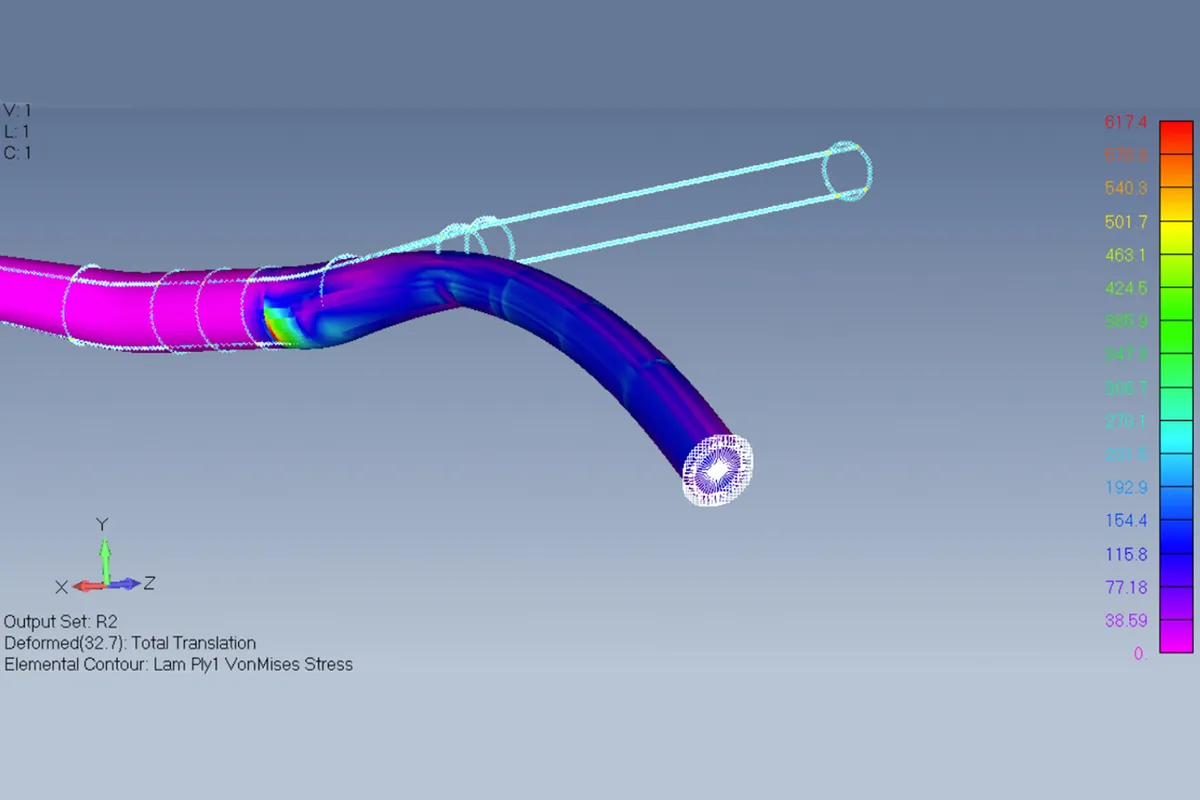
The laminate tools used in the development of the Rockstock are more commonly found in high-end motorsport and Formula 1.
This, says Mueller, enabled him to drill down into every detail to optimise strength where needed and minimise materials and weight: "We’ve applied the same level of engineering to the pieces as we do to our bicycle frames, so that means full FEA (finite element analysis) and laminate tools to make sure the construction meets our goals."
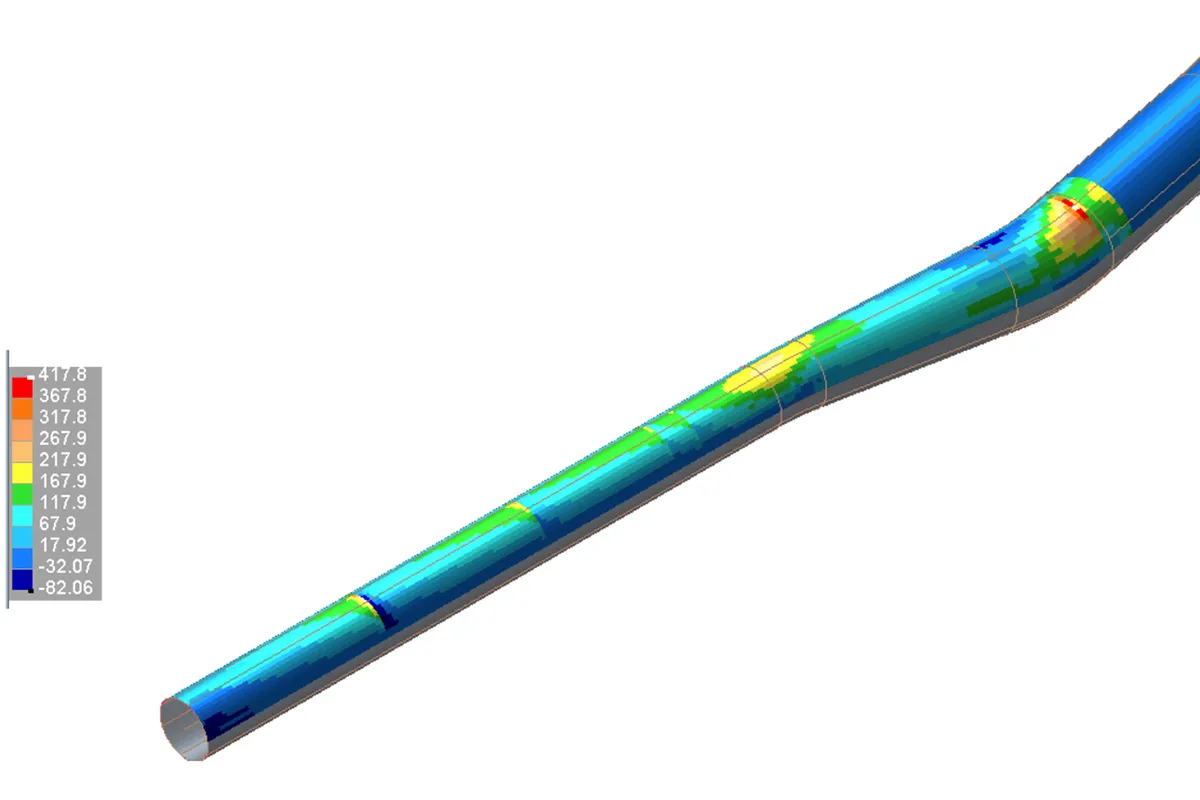
To achieve the goal of a higher level of vibration damping in the bar than found in its rivals, Mueller turned to a design feature not seen in bars before – viscoelastic damping.
Viscoelastic damping sees a stiff inner core layer used on the walls of the bars' tube and an outer constraining layer, which are then sandwiched between a viscoelastic layer that swallows up vibrations, making for a much more comfortable bar.
"When a laminate deforms, energy is stored in the material," says Mueller. "This energy lets the material spring back once the load is released. The viscoelastic layer turns part of this energy into heat and therefore the material springs back slower. [With] the use of laminate tools we could identify the areas with high interlaminar deformation, where the viscoelastic layer works most efficiently."
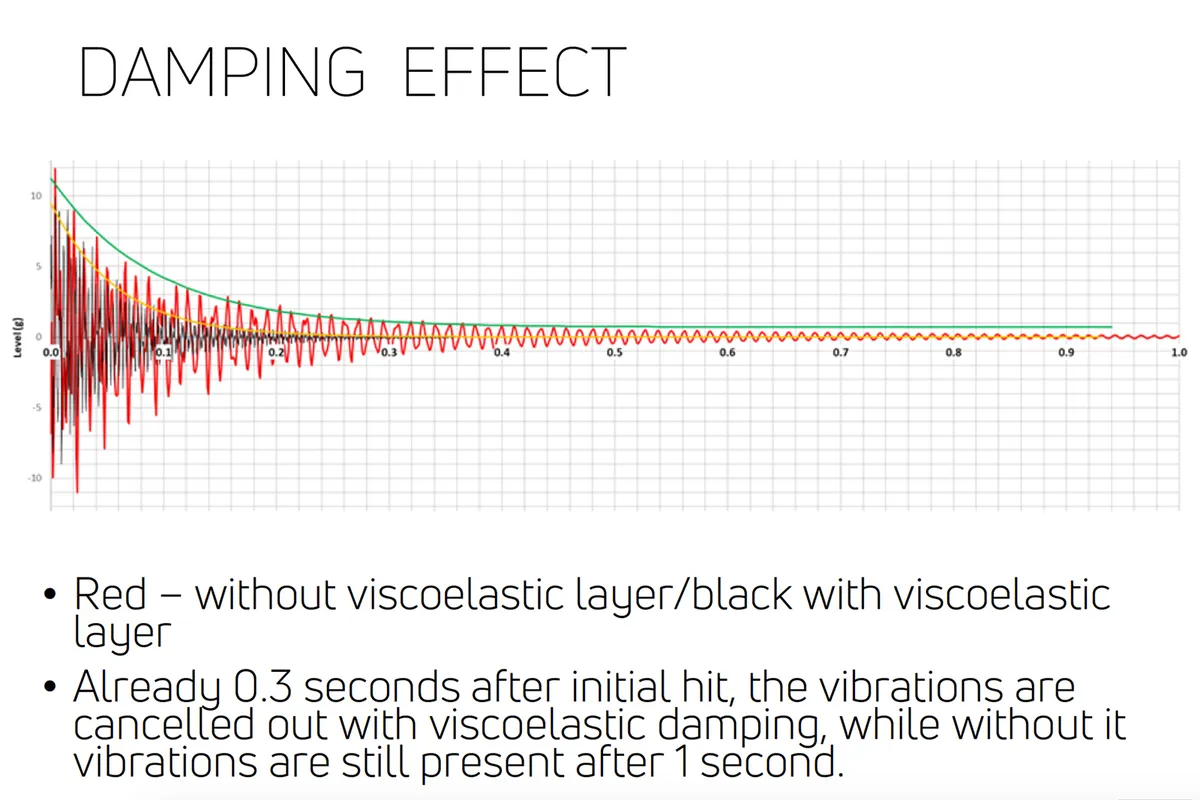
Under testing, Faserwerk found that the viscoelastic bar cancelled-out harsh vibrations within 0.3 of a second, whereas on a standard bar this vibration carried on for well beyond a second.
The Rockstock bars are 800mm wide with a 20mm rise and have 9 degrees of back sweep and a 31.8mm diameter. They weigh a claimed 199g and are priced at €199 / $199 / CHF199 – UK prices not yet available.
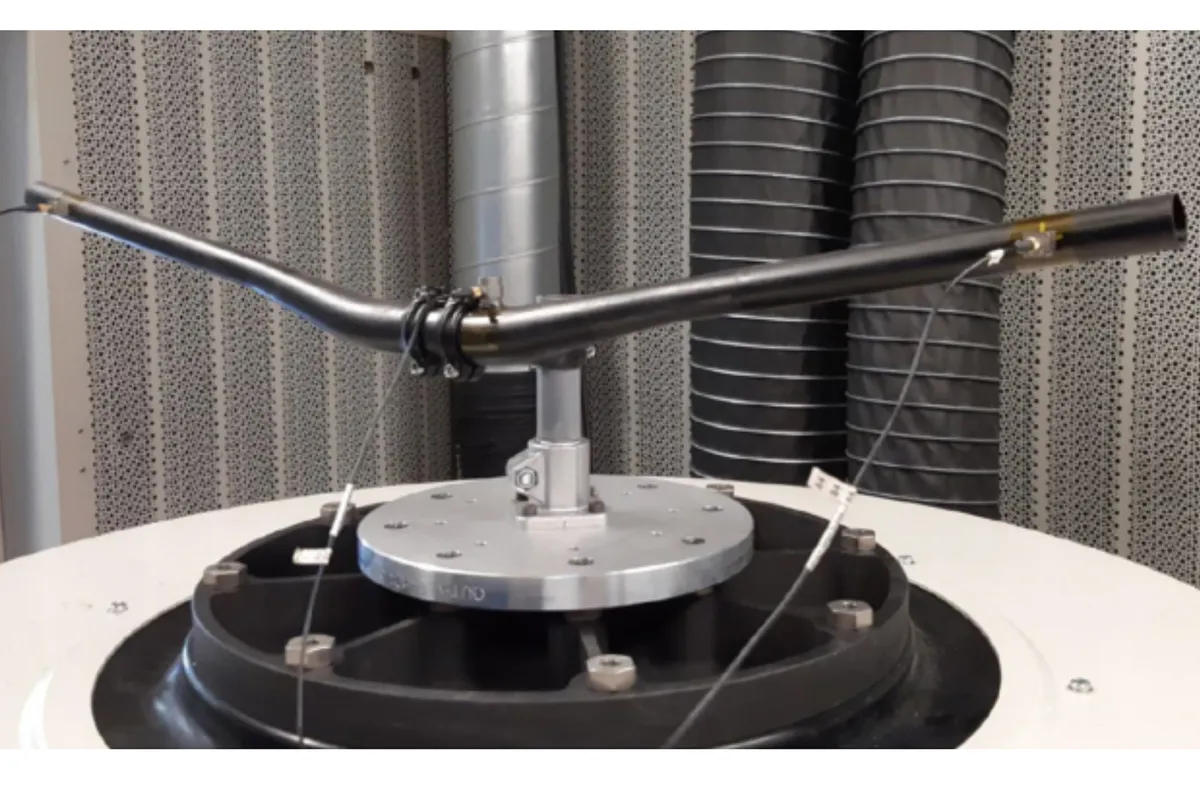
Faserwerk Wuthocker seatpost
The second component is the humble seatpost, but Faserwerk has created something rather special compared to the standard carbon seatpost.
Rather than just bond a clamp head on to a carbon tube, Faserwerk has introduced two new carbon construction methods to its post.
First, its CPMC (compression moulding compound) method of forming complex shapes in carbon involves having a roughly preformed carbon shape that's placed into a mould before its compressed at high pressure – between 70 to 100bar/1,015 to 1,450psi.
The mould is fully sealed so none of the carbon fibres can escape the compression process, and it’s this huge compaction that creates a super-strong structure that’s also very, very light.
Mueller tells us that this method of construction doesn’t require high heat, as per standard carbon fibre construction that involves oven treatment, which makes it a much cleaner and greener method with no waste and less energy.
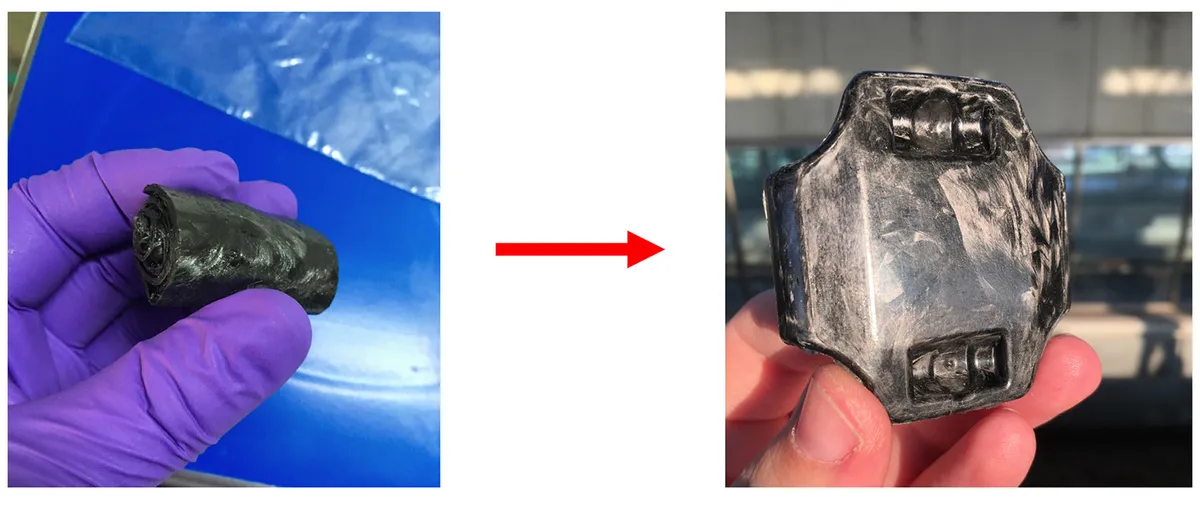
Once the head is finished, the second unique construction method is then used – carbon forging.
Here, the head is placed into a second mould and uses a more common expansion method of carbon forming – a mould with an internal bladder that expands with the heat from an oven.
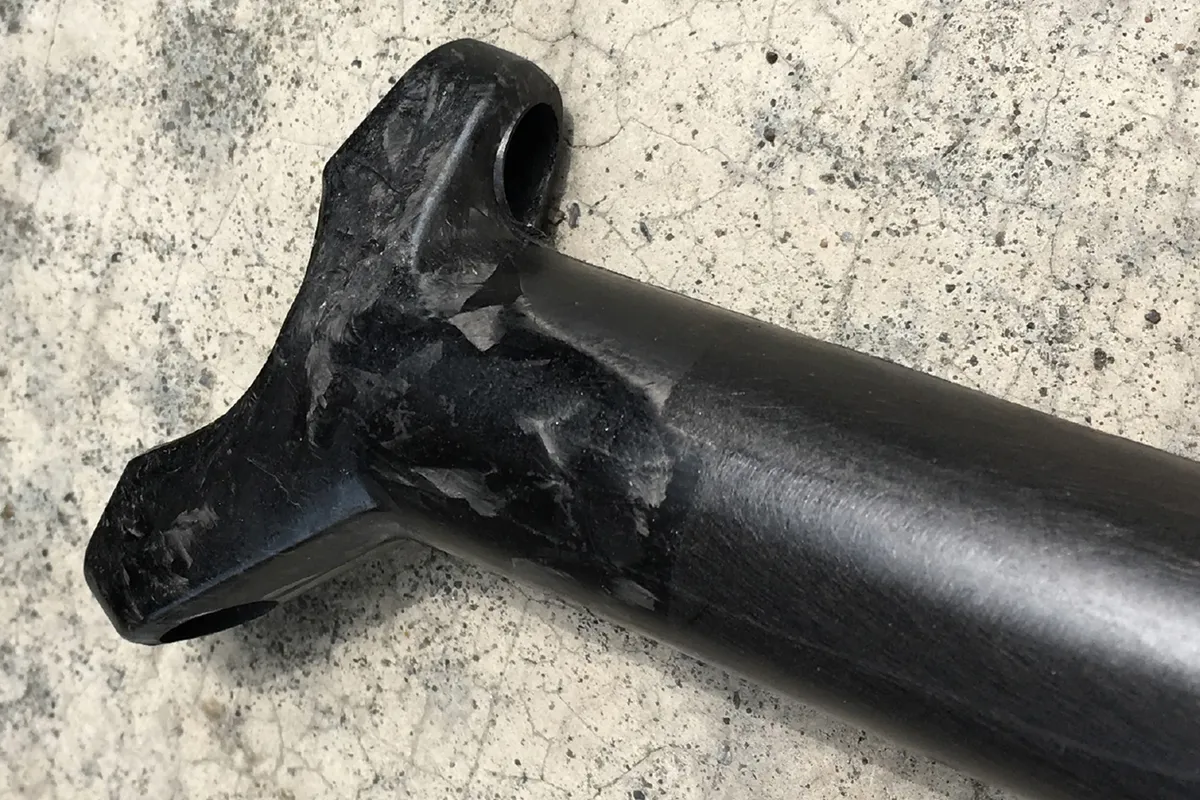
The tube section is designed using continuous fibres and as the carbon here is cured it forms a single-piece seatpost with the pre-formed head.
Faserwerk claims this makes for a much stronger post, and one that’s lighter too, because there is no secondary bonding process to fit the head to the post.
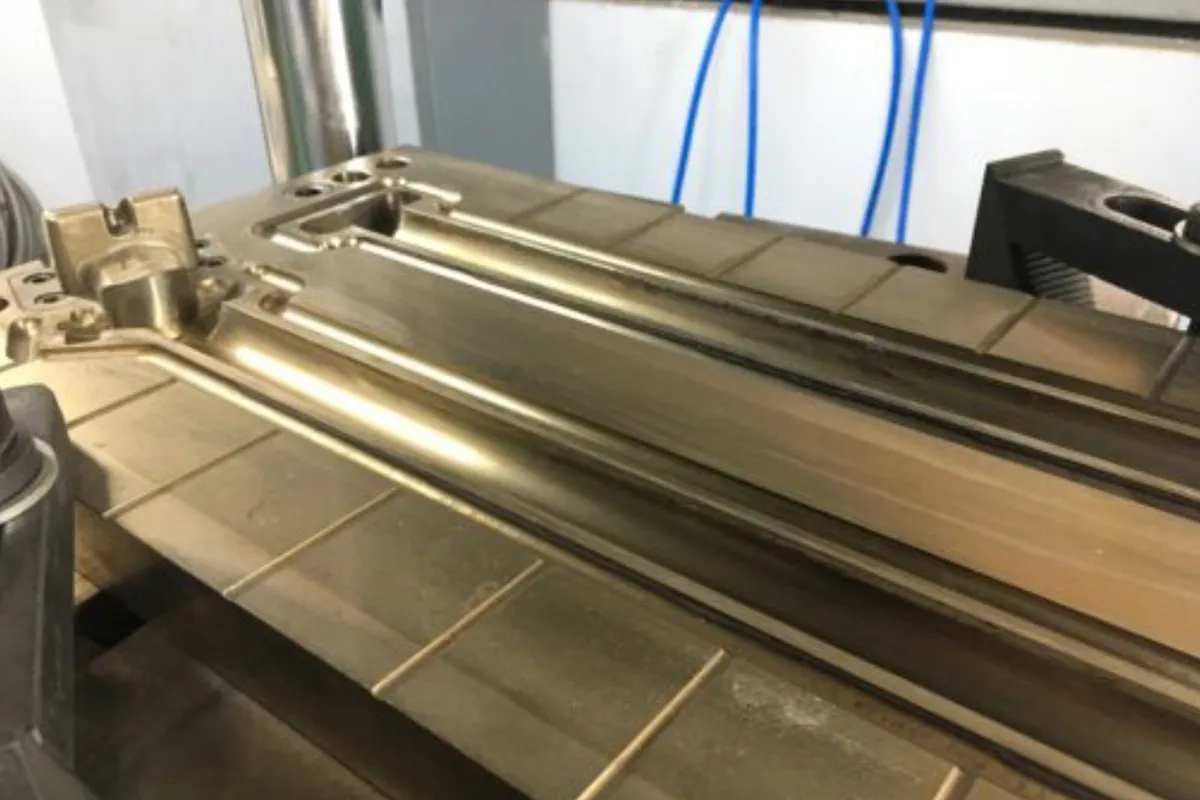
The Faserwerk Wuthocker seatpost is available in a 27.2mm diameter, 400mm length and weighs in at a claimed 188g. The seatpost is priced at €199 / $199 / CHF199 – again, no UK pricing is currently available.
Mueller tells us that this is just the first step for Faserwerk Components and he has plenty more ideas in the pipeline.
